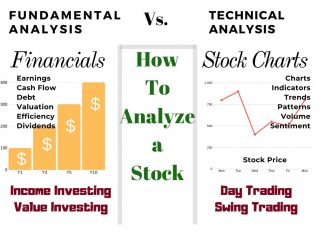If the idea of buying the stock exchange frightens you, you are not alone. Individuals with very limited experience in stock investing are either terrified by scary stories of the typical financier losing 50% of their portfolio valuefor example, in the 2 bear markets that have currently occurred in this millennium or are beguiled by "hot pointers" that bear the promise of big rewards but rarely pay off.
The reality is that purchasing the stock exchange brings threat, however when approached in a disciplined manner, it is one of the most effective methods to develop one's net worth. While the value of one's home generally accounts for most of the net worth of the typical private, the majority of the upscale and really rich normally have most of their wealth invested in stocks.

Secret Takeaways Stocks, or shares of a business, represent ownership equity zaneftdo936.cavandoragh.org/what-is-a-bond-vanguard in the company, which give investors voting rights as well as a recurring claim on business incomes in the type of capital gains and dividends. Stock markets are where specific and institutional investors come together to buy and offer shares in a public venue.
An individual or entity that owns 100,000 shares of a business with one million outstanding shares would have a 10% ownership stake in it. Many companies have impressive shares that face the millions or billions. Typical and Preferred Stock While there are two primary types of stockcommon and preferredthe term "equities" is associated with common shares, as their combined market price and trading volumes are many magnitudes bigger than that of favored shares.
Preferred shares are so called due to the fact that they have choice over the typical shares in a business to get dividends along with properties in the occasion of a liquidation. Common stock can be more categorized in terms of their voting rights. While the standard facility of typical shares is that they need to have equal voting rightsone vote per share heldsome companies have dual or multiple classes of stock with various ballot rights connected to each class.